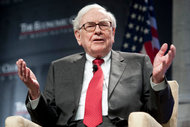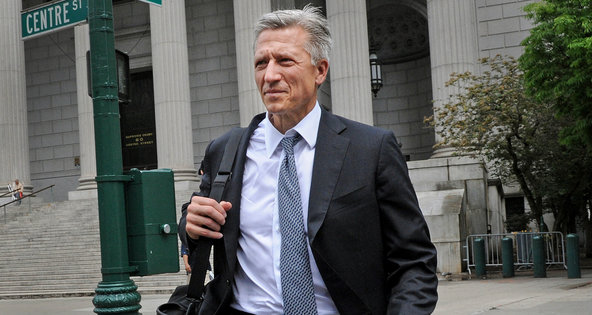 Cliff Owen/Associated PressWarren E. Buffett, the billionaire investor and chief of Berkshire Hathaway.
Cliff Owen/Associated PressWarren E. Buffett, the billionaire investor and chief of Berkshire Hathaway.
Warren E. Buffett has strengthened his bond with his friend and fellow billionaire Bill Gates, with a $2 billion charitable donation.
Mr. Buffett on Monday distributed 17.5 million Class B shares of Berkshire Hathaway to the Bill and Melinda Gates Foundation, a gift valued at about $2 billion based on Friday’s closing price.
The donation was part of Mr. Buffett’s annual charitable contributions, which also included gifts to the Susan Thompson Buffett Foundation, the charity named for Mr. Buffett’s late wife, and the Howard G. Buffett Foundation, which is named for Mr. Buffett’s son. In total, Mr. Buffett donated 22.9 million Class B shares of Berkshire Hathaway on Monday.
Seven years ago, Mr. Buffett pledged to give about $31 billion to the Gates Foundation, which aims to improve health and education in poor nations. He said at the time that he would give the bulk of his fortune to the foundation and four other philanthropies.
Mr. Buffett’s net worth is estimated by Forbes to be $53.5 billion as of March, making him one of the richest men in the world.
The billionaire has been active in deal-making recently, even amid a somewhat lackluster period for mergers and acquisitions. Mr. Buffett teamed up with 3G Capital in February in a $23 billion deal for the H.J. Heinz Company and said in his annual investor letter that he continued to hunt for “elephants.”
Mr. Buffett and Mr. Gates have also worked to persuade other wealthy Americans to give away much of their fortunes, through a commitment known as the Giving Pledge. The effort has attracted many prominent adherents.
Article source: http://dealbook.nytimes.com/2013/07/08/buffett-gives-2-billion-to-gates-foundation/?partner=rss&emc=rss





